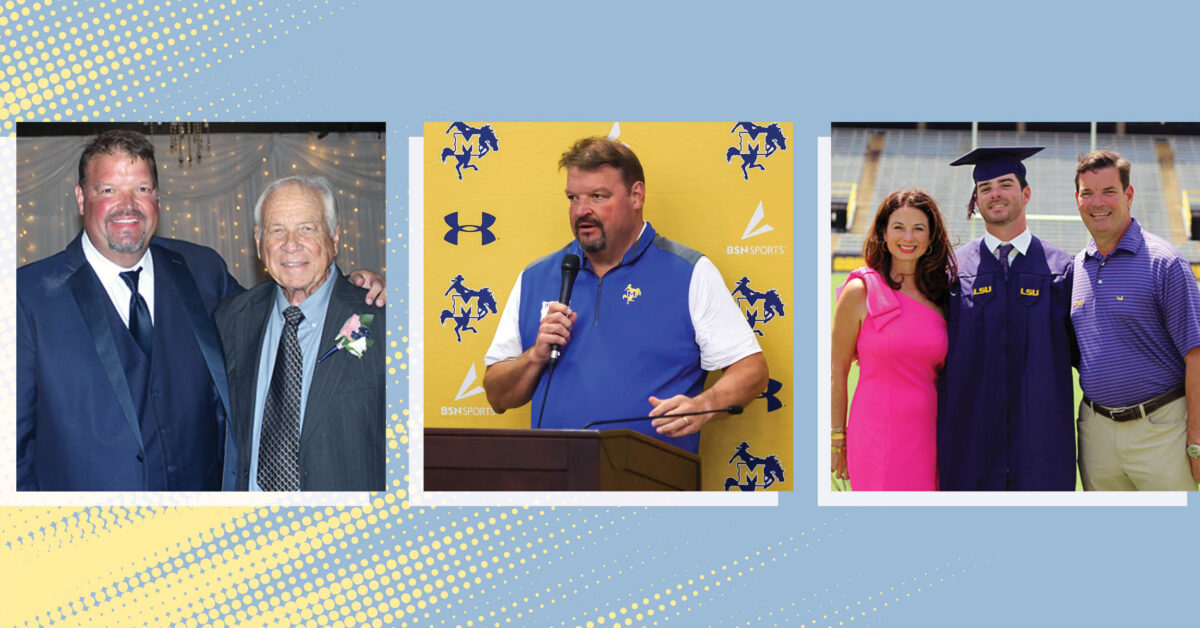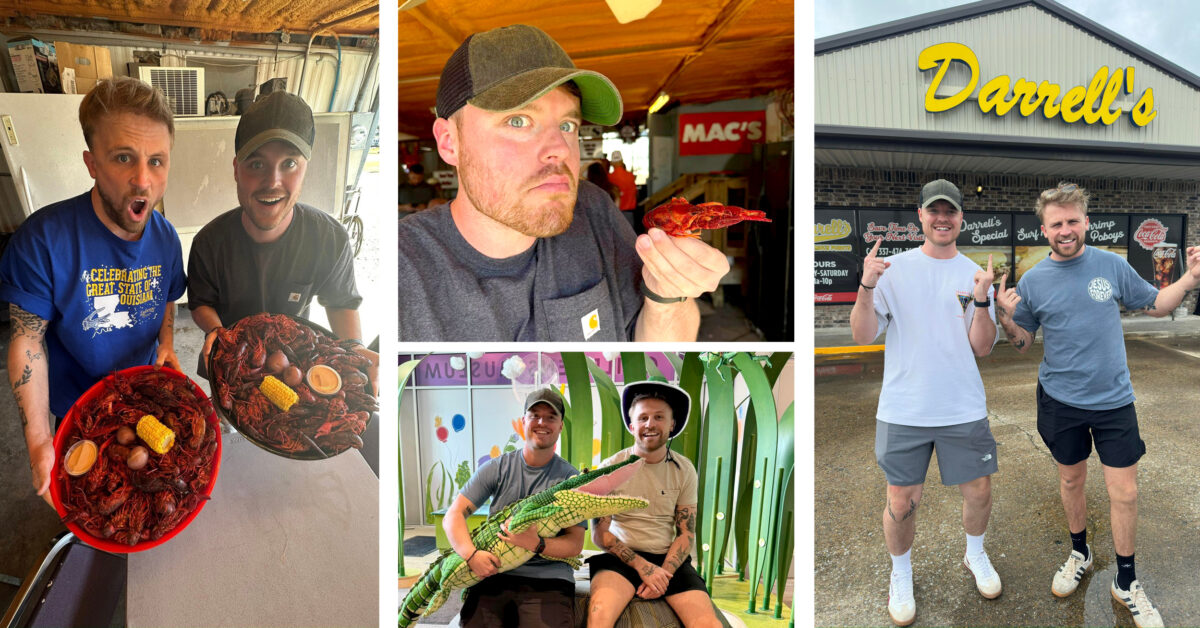
SWLA Candidates for Sheriff
September 2023
From Radiation to the Runway: Survivor Stories
September 2023by Matt Dye
The name Bonnette has been synonymous with collegiate athletics in Louisiana for over a half century since Louis Bonnette took the Sports Information Director job at McNeese in 1966. After 46 years, over 500 consecutive McNeese football games, having the McNeese football field named after him, as well as the Southland Conference’s Sports Media Award, Louis Bonnette retired from a job that took him to 48 of the 50 states, leaving behind a legacy that his sons Michael and Matthew both carry on today at LSU and McNeese, respectively.
The job of Sports Information Director has evolved over the course of time and differs depending on a school’s size and number of sports, but it takes more than just a passion for sports to do the job right, so it’s only natural to ask all three Bonnettes for their experience on this cool job.
First things first, what does a Sports Information Director do?
LB: When I first started sports information by itself was more than a full-time job. I also handled our ticket office, our travel, and some of our budget. We kept our statistics in all sports ourselves. Saturday nights after football games were long, especially when there were no computers.
MiB: A little bit of everything. Our main responsibility is to publicize our teams and student athletes. Being able to tell those feel-good stories about our student-athletes overcoming adversity, doing good things in the community, getting their degree – that’s what we strive to do.
MaB: The job has evolved so much over the 22 years I’ve been in it. It’s mainly a media relations position. Being the athletics department spokesperson and liaison with the media is still the number one thing.
What was your path to the SID position?
LB: It was immediate into the journalism field for me. I graduated from Louisiana Tech in January of 1963 and the next day began working for the Beaumont (TX) Enterprise. They had planned on me joining the news staff but a sports job had opened. I was with Enterprise for three years before getting the job at McNeese.
MiB: I was a general studies major at LSU with an emphasis on marketing, management, and journalism. I basically grew up in my dad’s office – I would go there after school just about every day. I idolized my dad and was so proud of the work he did and the job he had. I was fortunate to be able to work in the sports information department as a student at LSU. It validated what I was thinking growing up.
MaB: I was a student worker for my dad in the SID department, so I was at all the home football, basketball, and baseball games. I was also the sports editor for the school newspaper The Contraband. I wanted to go into film study and write and produce movies. But when I realized that dream was not happening, I started to work at KPLC and got into commercial production. At some point, I saw the light and decided to finish my degree.
What effect has social media and technology had on the job?
LB: You’re able to get info out a lot quicker to a lot more people. There is no holding onto stories. When it happens, it’s out. Also, a lot of people on Facebook think that they might know more.
MiB: Technology has made some things much easier, but it’s also created another layer of work that wasn’t available to us early in my career. We are fortunate to have so many former athletes doing great things in the professional leagues and social media gives us the chance to share that with our fans.
MaB: The first mention of any news is no longer coming from the SID office, but now it’s out on social media. The advancement of technology has really sped up the profession, especially when it comes to keeping game stats.
What are some of your favorite memories of being on the job?
LB: Working in the same press box with Michael in 2010 when McNeese played at LSU and with Matthew a couple of times when McNeese played at Northwestern State. Michael and Matthew following along in the job is what I am most proud about. They knew the hard work that it takes.
MiB: Being part of three national championships in football is always something I will remember, but the things that mean the most to me are the friendships with the players and coaches through the years. It’s also really cool to have a brother in the business at a school right down the interstate.
MaB: One of the most special things in my life was working for dad – seeing how professional he was at the job and how well respected he was by everyone in the community. In terms of events worked, my favorite has been when football beat the heck out of South Florida, a BCS school who was a year removed from being No. 2. Of course, the near shocker at Nebraska, when Nebraska won in the final seconds, as our team walked off the field, the entire Nebraska fanbase gave our guys a standing ovation.
What would you tell someone that wanted to become a Sports Information Director? What steps should they take?
MiB: You obviously have to be passionate about it and be willing to take any opportunity to get your foot in the door. Being able to communicate in a must – you have to be able to communicate both verbally and through the written word. Writing seems to be a lost art but it’s extremely important when it comes to story-telling, press releases, and spreading the word about your teams.
MaB: Be ready to work. If anyone is looking to get into the field, I’d say to contact that department and ask about volunteering or shadowing the SID or assistants to see what all is involved. There’s so much to the job that people don’t know about.






